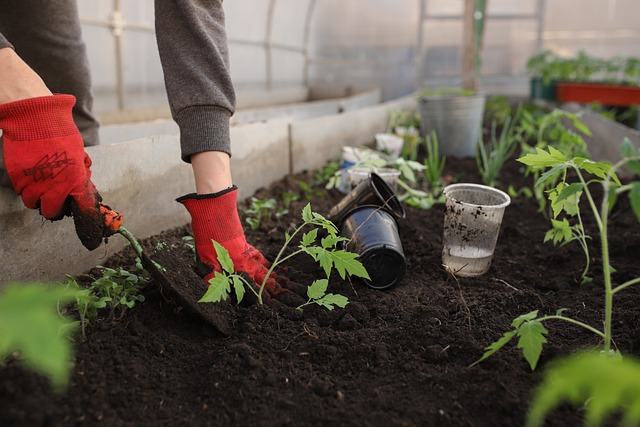Embarking on the journey of creating your first garden is a delightful adventure. It is filled with the promise of nature’s beauty right at your doorstep.
For novice gardeners, the prospect of nurturing plants and cultivating a green space can be both exciting and daunting. But, worry not!
We are here to guide you through this fulfilling endeavour. In this comprehensive guide, we will introduce you to 10 must-have plants. These are not only easy to grow but also perfect for beginners.
Gardening, even for those who are new to it, can be an immensely rewarding experience. With these plants in your garden, you’ll witness vibrant, flourishing greenery and enjoy the wonders of nature’s bounty. So, if you are ready, read on.
1. Sunflower
Sunflowers are perhaps one of the most iconic and cheerful flowers you can have when you plan to learn to garden. With their sunny faces and tall stems, sunflowers bring warmth and happiness to any space.
What makes them particularly attractive for beginners is their ease of cultivation. Sunflowers are hardy plants that thrive in various soil types and require minimal maintenance. Arranging sunflowers in your garden can create a stunning focal point and add a touch of vibrant beauty to your outdoor space.
To successfully grow sunflowers, choose a sunny spot in your garden where they can receive at least six hours of direct sunlight daily. Sunflowers are known for their ability to follow the sun’s path throughout the day, a phenomenon called heliotropism. This trait adds an enchanting dynamic to your garden as these blooms turn their faces toward the sun.
Plant sunflowers from quality seeds, water them regularly and watch them reach for the sky. In a matter of weeks, you’ll be rewarded with bright, beautiful blooms that symbolize the essence of summer.2.
2. Tomatoes
Few things are as satisfying as plucking fresh, ripe tomatoes from your own garden. Whether you use them in salads, whip up delectable pasta sauces, or simply savor them as snacks, homegrown tomatoes are a culinary delight. For beginners, tomatoes are an excellent choice because they are forgiving plants and are relatively easy to grow.
To grow tomatoes successfully, start with quality seeds or young plants from your local nursery. Tomatoes thrive in full sunlight, so choose a spot in your garden where they can soak up the sun’s rays. Well-draining soil is essential to prevent waterlogged roots, which can lead to various problems.
Consistent watering is crucial; aim to keep the soil evenly moist but not waterlogged. Tomatoes are known for their voracious appetites. So, consider feeding them with a balanced fertilizer to support healthy growth.
3. Basil
Basil is an aromatic herb that not only enhances the flavors of your dishes but also adds a refreshing fragrance to your garden. It is a versatile herb used in a wide range of culinary creations, from pasta sauces and salads to flavorful pesto. For beginners, growing basil is a delightful introduction to herb gardening.
To cultivate basil successfully, choose a sunny location in your garden where it can bask in the sunlight. Basil prefers well-drained soil with good air circulation to prevent fungal diseases.
Regular pruning is key to encouraging bushier growth. It ensures a steady supply of aromatic leaves for your culinary adventures. Simply pinch off the top leaves when they reach a reasonable size, and you’ll have a continuous harvest of fresh basil.
4. Zinnias
If you’re looking to add a burst of color to your garden, zinnias are an excellent choice. These annual flowers come in a variety of shades. They can come from fiery reds to soft pinks.
This makes them a versatile and visually appealing addition to your garden. Zinnias are particularly favored by beginners because they are easy to grow and remarkably resilient.
To cultivate zinnias successfully, select a sunny spot in your garden, as they thrive in full sunlight. Zinnias are not particularly picky about soil, but they do require well-drained ground.
Make sure to plant them from quality seeds. Buy seeds from reputable stores like Seedparade to ensure the quality of your plants.
Provide consistent watering to help them establish healthy roots. You’ll be rewarded with vibrant blooms that not only brighten up your garden. They will also attract beneficial pollinators like butterflies.
5. Mint
Few things compare to the refreshing scent of freshly crushed mint leaves. Having your own mint plant in the garden ensures a ready supply for your culinary and beverage needs. Mint is an aromatic herb with a multitude of uses, from flavoring drinks to garnishing desserts. For beginners, mint is an excellent choice because it’s easy to grow and offers a myriad of benefits.
Mint prefers partial sunlight but can tolerate full sun with adequate watering. To control its growth, consider planting mint in a container or in an area where it won’t spread uncontrollably in your garden.
Be mindful that mint can be quite vigorous and invasive. So, occasional pruning and containment are essential to keep it in check.
6. Marigolds
Marigolds are not only beautiful flowers but also serve as natural pest repellents in your garden. These vibrant orange and yellow blooms help deter common garden pests like aphids and mosquitoes, making them a valuable addition to any garden, especially for beginners. Marigolds are known for their resilience and ability to thrive in various soil conditions.
To cultivate marigolds successfully, choose a spot in your garden that receives plenty of sunlight. Marigolds are not particularly finicky about soil and can grow in various types, but they do prefer well-drained ground. With regular watering and minimal care, marigolds will flourish and contribute to the overall health and vibrancy of your garden.
7. Peppers
Growing your own peppers is a gratifying experience, and they are a fantastic choice for beginner gardeners. Whether you prefer sweet bell peppers or enjoy the fiery kick of chili peppers, there’s a variety to suit every palate. Peppers require full sun and well-drained soil, making them relatively easy to grow with the right care.
To cultivate peppers successfully, begin with quality seeds or young plants from your local nursery. Choose a sunny location in your garden where peppers can receive ample sunlight. Consistent watering is essential, as peppers thrive in consistently moist but not waterlogged soil.
By following these guidelines and providing appropriate care, you can enjoy a steady supply of peppers throughout the growing season.
8. Lavender
Lavender is a fragrant and elegant addition to any garden. This aromatic herb is known for its calming properties and is often used in aromatherapy, potpourri, and sachets. For beginners, lavender is an excellent choice because it’s relatively easy to grow, low-maintenance, and adds a touch of sophistication to your garden.
To cultivate lavender successfully, choose a sunny spot in your garden where it can receive at least six hours of sunlight daily. Lavender prefers well-drained, slightly alkaline soil.
It is drought-tolerant once established, making it a great choice for regions with hot, dry summers. Pruning lavender after blooming helps maintain its shape and encourages fresh growth.
9. Cucumbers
Imagine the satisfaction of plucking crisp, fresh cucumbers from your own garden on a hot summer day. Cucumbers are incredibly rewarding to grow and are a refreshing addition to salads, sandwiches, and snacks. For beginners, cucumbers are an excellent choice because they grow quickly and produce an abundance of vegetables.
To cultivate cucumbers successfully, start with quality seeds or young plants from your local nursery. Choose a sunny location in your garden and ensure that the soil is well-drained and rich in organic matter.
Consistent watering is crucial, especially during hot weather, to prevent bitter-tasting cucumbers. By following these steps and providing proper care, you’ll enjoy a bountiful harvest of cucumbers.
10. Chives
Chives are a versatile herb that can be grown in containers or directly in your garden. They add a mild onion flavor to dishes without the need for a full-sized onion. Chives are perfect for gardening for beginners and a useful addition to any herb garden.
To cultivate chives successfully, choose a location in your garden that receives partial sunlight. Chives prefer well-drained soil that is rich in organic matter.
Regular trimming and harvesting encourage new growth and ensure a continuous supply of fresh chives for your culinary creations. Simply snip off the top leaves when they reach a reasonable size, and you’ll have a steady harvest.
Planning What to Plant in Your First Garden
Creating your very own first garden is a deeply rewarding journey, and as a beginner, it’s essential to start with plants that are easy to grow and maintain. These 10 must-have plants – sunflowers, tomatoes, basil, zinnias, mint, marigolds, peppers, lavender, cucumbers, and chives – offer a diverse array of beauty, flavor, and fragrance for your garden.
By providing these plants with the right conditions, including ample sunlight, well-drained soil, and consistent care, you’ll be well on your way to a thriving garden. Whether you’re a seasoned gardener or just starting out, remember that gardening is a journey filled with joy, discovery, and the beauty of nature. So, plant your garden with quality seeds, nurture it with care, and let the wonders of nature unfold in your own backyard.
Happy gardening! If you think this article is helpful, check out our other blogs!


